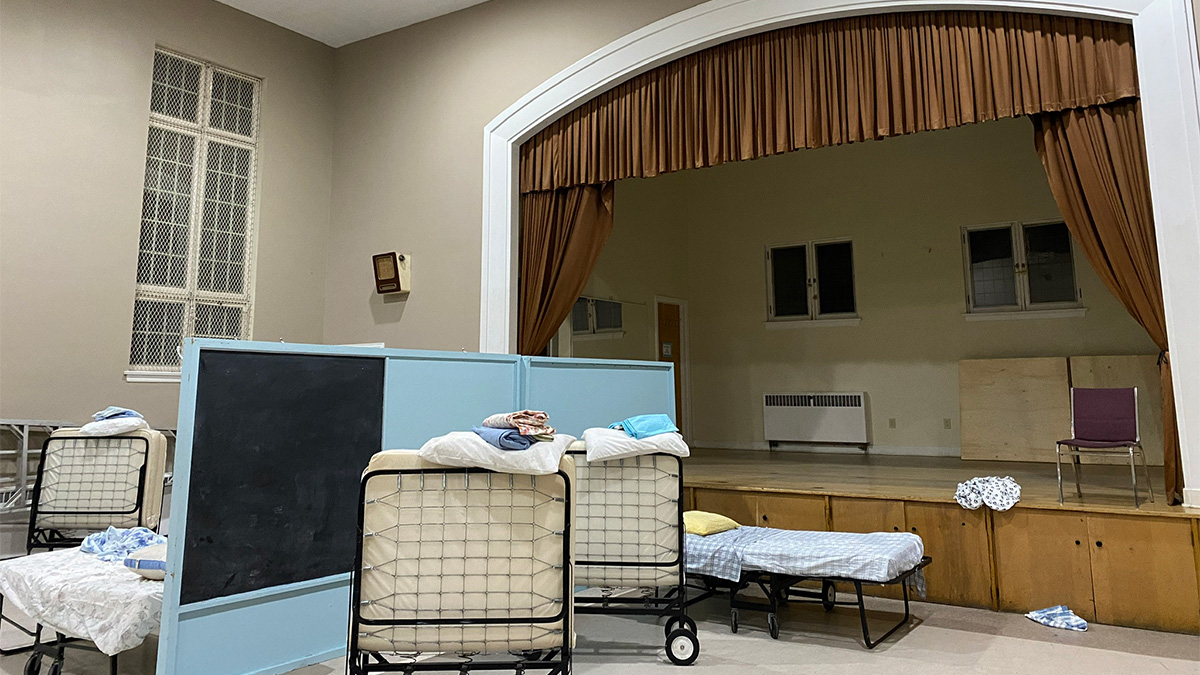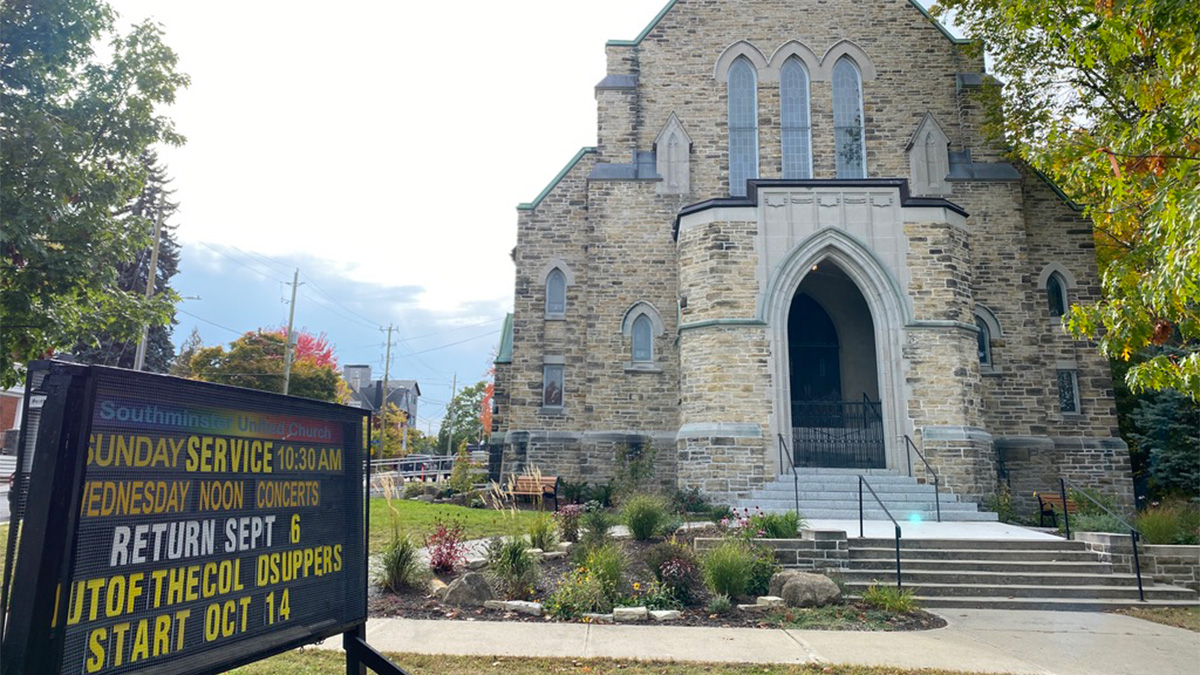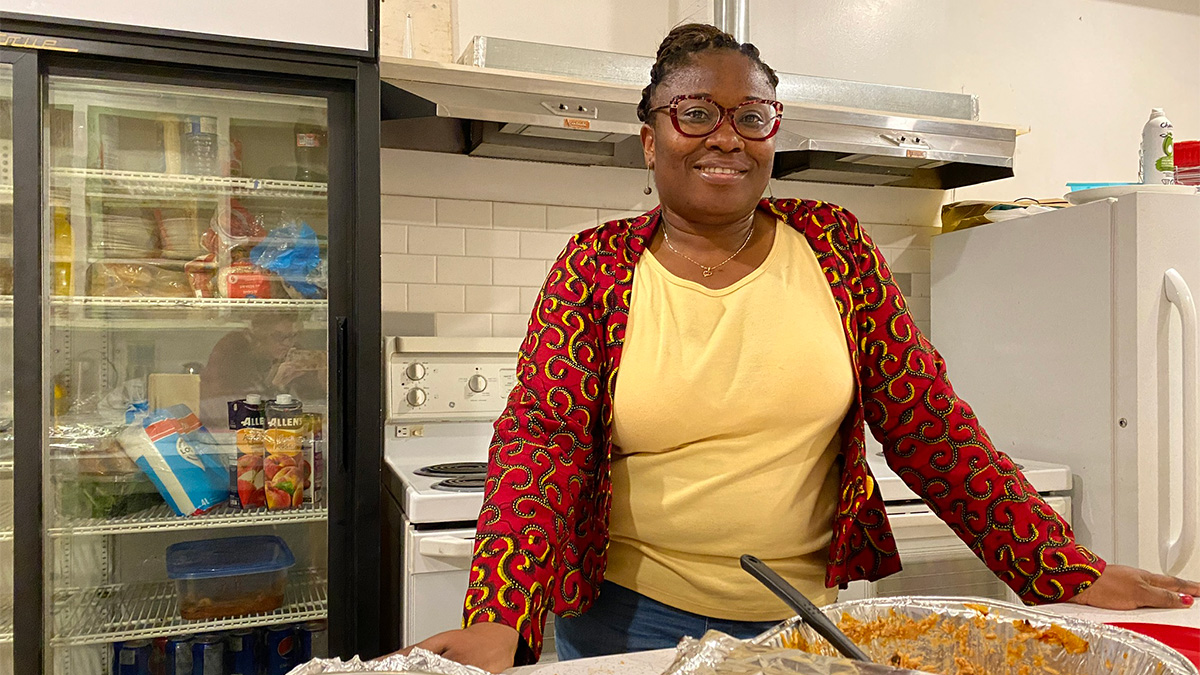A free dinner of chicken pot pie and apple crumble lured guests to Southminster United Church for its first Out of the Cold supper of the fall.
Diners, who skewed age 50 and up, enjoyed a social evening and a warm meal without having to open their wallets. Thirty-seven people attended, more than the program averaged through all of last year.
Overwhelmingly, drop-in and food bank programs in the Glebe, Old Ottawa South and Old Ottawa East are tied to Christian churches. Many similar programs exist across the city, meaning faith-affiliated organizations shoulder a disproportionate amount of the burden when it comes to providing relief amid a food insecurity crisis.
The people who run the programs want to see the city offer better solutions than the emergency help they provide.
“I would suggest government is not truly treating this like it is a crisis.”
– Craig Piché, Out of the Cold coordinator at Southminster United
“It’s a crisis of food. It’s a crisis of food availability. It’s a crisis of housing,” said Craig Piché, a coordinator for Southminster United’s program.
“Given the number of busy programs that are running and busy each weekend and during the week, and the amount of time and effort put into what are essentially Band-Aid solutions, whether they’re food banks or drop-ins, I would suggest government is not truly treating this like it is a crisis,” he said.
Haven Too, an emergency youth shelter that serves meals, incorporated last May after being run as a charity by the Fourth Avenue Baptist Church for six years. Getting enough funding to serve the youth who use the service has been a “major challenge” since the transition, said Aisha Ahmed, program coordinator.
The young people who turn to Haven Too are from all over, she said. With the arrival of colder weather, more have been coming.
Youth as young as 11 have sought refuge at Haven Too but at that age, the shelter cannot provide them with an overnight stay. “We bring them in, we feed them, then we have to call the cops,” Ahmed said. “That’s how bad it is.”

On the food bank front, the Centretown Community Food Centre is the only Ottawa Food Bank location for the Glebe, Old Ottawa South and Old Ottawa East. It also serves Centretown.
The centre was founded by the Centretown Churches Social Action Committee and its funding comes from church and private donations, Diana Mahaffy, the CCSAC’s manager.
The centre used to be funded by the city, until it was deemed sustainable without the city’s help. “We have tried to access city funding and have not been successful in the last couple of years,” Mahaffy said.
She said users generally share the same concerns — the high cost of housing, the high cost of food and a lack of access to social programs.
“Food insecurity doesn’t exist in a vacuum,” Mahaffy said. “And if we can’t provide affordable housing and we can’t provide adequate income support, then the food banks will always need to exist.”
The city is investing $1.7 million annually between 2022 and 2026 in core and program funding for food security organizations including emergency food banks, meal programs and food security coalition capacity support, according to Cinthia Pagé, program manager of social development and funding.
Planning for the city’s 2024 budget is underway. Somerset Coun. Ariel Troster has called for it to tackle affordability.
“Citywide, more and more people are hungry. Food banks are seeing 30 per cent more usage,” Troster said at a recent community consultation on the draft budget, citing May figures from the Ottawa Food Bank. “When we show initiative, it attracts funding from other levels of government.”
Relief through affordability may also help households find culturally appropriate food more easily. A 2023 report from the Parkdale Food Centre reports that 49 per cent of its users it surveyed were unable to afford and access food that was culturally appropriate for their household.

Out from the Cold and Haven Too avoid serving pork. The Centretown Community Food Centre offers halal meats and fish and has clients pick their own food from its grocery-style selection. However, these organizations do not provide enough food to last households the entire month — clients of the food centre can only leave it with three to four days’ worth of groceries, once a month.
“The city, everybody should get into this. This is not the church’s business. It’s not an individual business,” Ahmed said. “The city should pay attention to what’s happening in our house.”




